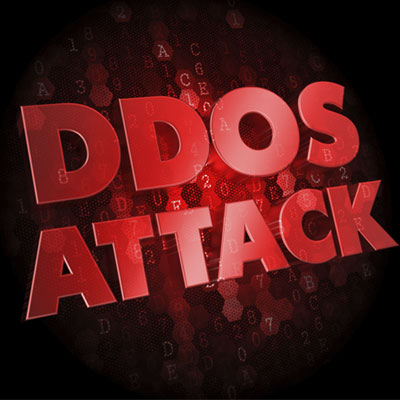According to research conducted by B2B International and Kaspersky Lab, 38 percent of companies providing online services (such as online shopping, online media, and others) fell victim to DDoS attacks over the last 12 months. The research proves that Distributed Denial of Service attacks are common events for online businesses rather than just isolated incidents. That’s why it is so important to guarantee business continuity by taking steps to protect against DDoS attacks.
DDoS attacks aim to block access to a company’s online resources by overloading them with “junk” requests. Today DDoS attacks are easy and cheap for almost anyone to launch. Costs are low, a simple search will find people who can do it for you, and crypto currencies allow everyone to conceal their identities. This accessibility means that any company with rivals or opponents of any sort is at risk.
Featured Download: Social media access at work. Do your employees know the rules?
However, research suggests that IT companies suffer more than most from DDoS attacks: 49 percent of IT industry representatives reported that they had encountered at least one DDoS attack over the last year. Other businesses that rely on continuous online services to make profits also scored highly: firms engaged in e-commerce (44 percent), organisations providing telecommunications services (44 percent) and the media (42 percent). Financial companies are also among the most frequently attacked organisations – 39 percent of them reported an incident.
The consequences of DDoS attacks depend on their type and duration, as well as on the field of activity and distinctive features of the targeted company. The research suggests that 13 percent of attacks render the target sites totally inaccessible. This fate most often befell media sites – 32 percent of media organisations reported that their web resources had been completely disabled due to a DDoS attack. But even if the attackers failed to completely block user access to a company’s information resources, partial inaccessibility is also a serious problem. For example, 29 percent of respondents reported that they or their users had faced problems conducting online transactions as a result of a DDoS attack. This problem is particularly significant for companies working in telecommunications and logistics – 49 percent and 45 percent, respectively.
The number of companies affected varies from region to region. Even in North America, where, according to our research, DDoS attacks were less common than anywhere else in the world, nearly a quarter of the companies surveyed (24 percent) fell victim to them. In Europe, the situation is even more serious: almost a third of West-European (32 percent) and nearly half of Russian (49 percent) companies faced a DDoS attack.
“Even though one in three companies has suffered from DDoS attacks, just six percent believe this type of incident is the most dangerous external cyber-threat they face. However, taking down a site or preventing transactions is only the tip of the iceberg. A DDoS attack can lead to reputational losses or legal claims over undelivered services. To ensure that clients have uninterrupted access to their online services, companies need to think in advance about appropriate protection against DDoS attacks”, said Eugene Vigovsky, Head of Kaspersky DDoS Protection, Kaspersky Lab.
Kaspersky DDoS Protection is a solution that integrates Kaspersky Lab’s advanced technologies to protect against DDoS attacks. If a DDoS attack is detected by a special sensor, all traffic sent to the client is redirected to special Kaspersky Lab equipment where “junk” requests are filtered out by sophisticated individual algorithms. These cleaning centers are also monitored by experts who can adjust the algorithms if required, even during an attack. This approach avoids overloading of the online customer service even during a sophisticated or previously unknown attack. Read more about the principles of the solution in the brochure.
About Kaspersky Lab
 Kaspersky Lab is the world’s largest privately held vendor of endpoint protection solutions. The company is ranked among the world’s top four vendors of security solutions for endpoint users*. Throughout its more than 17-year history Kaspersky Lab has remained an innovator in IT security and provides effective digital security solutions for large enterprises, SMBs and consumers. Kaspersky Lab, with its holding company registered in the United Kingdom, currently operates in almost 200 countries and territories across the globe, providing protection for over 300 million users worldwide. Learn more at www.kaspersky.com.
Kaspersky Lab is the world’s largest privately held vendor of endpoint protection solutions. The company is ranked among the world’s top four vendors of security solutions for endpoint users*. Throughout its more than 17-year history Kaspersky Lab has remained an innovator in IT security and provides effective digital security solutions for large enterprises, SMBs and consumers. Kaspersky Lab, with its holding company registered in the United Kingdom, currently operates in almost 200 countries and territories across the globe, providing protection for over 300 million users worldwide. Learn more at www.kaspersky.com.
The opinions expressed in this post belongs to the individual contributors and do not necessarily reflect the views of Information Security Buzz.



